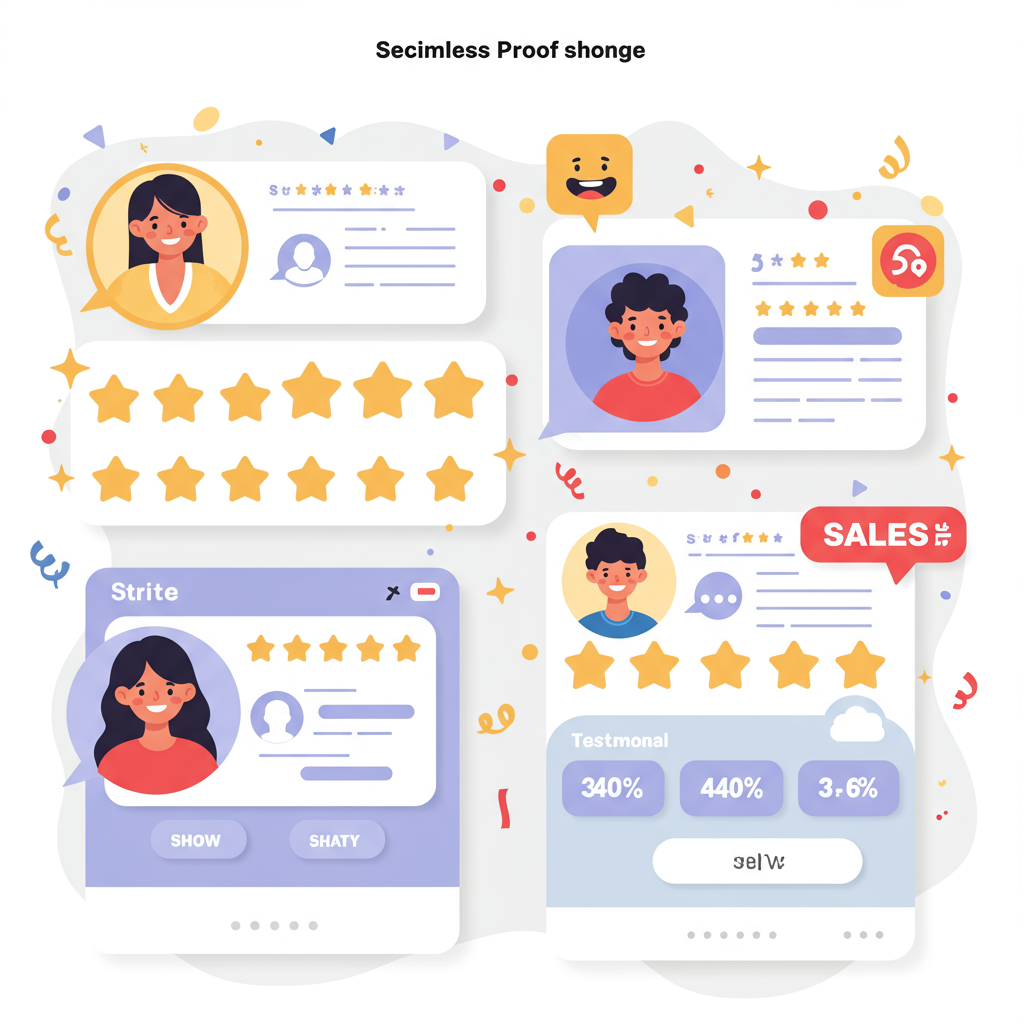Leveraging Trust and Popularity to Boost Your E-commerce Conversions
As a Shopify merchant, I’m constantly looking for ways to boost sales and build trust with my customers.
One of the most powerful strategies I’ve discovered, and one I highly recommend, is leveraging social proof.
But what exactly is social proof in the context of e-commerce?
Simply put, it’s the psychological phenomenon where people assume the actions of others in an attempt to reflect correct behavior for a given situation.
On your Shopify store, this translates to showing potential customers that others have already bought from you, trust you, and are happy with their purchases.
It’s about demonstrating popularity, credibility, and reliability without you having to explicitly state it.
I’ve seen firsthand how effective this can be in reducing buyer friction and increasing conversion rates.
When a new visitor lands on your store, they’re often skeptical. They don’t know you, and they don’t know your products.
Social proof acts as a powerful antidote to this skepticism, providing external validation that your store is legitimate and your products are desirable.
Let’s dive into the various forms of social proof you can implement using widgets and apps on your Shopify store.
The most common and arguably most impactful form is customer reviews and testimonials.
When I see a product with dozens or even hundreds of positive reviews, I feel much more confident in making a purchase.
These aren’t just star ratings; they’re often detailed accounts from real people sharing their experiences, which builds immense trust.
Another highly effective type is sales notifications or recent purchase pop-ups.
Imagine a small notification appearing on your screen saying, “Someone in New York just bought X product!”
This creates a sense of urgency and FOMO (Fear Of Missing Out), making me think, “If others are buying it, maybe I should too!”
Live visitor counters or “X people are viewing this product right now” messages also fall into this category.
They simulate a busy physical store, indicating popularity and encouraging quicker decisions.
Trust badges and certifications are equally vital. These include secure payment badges, money-back guarantees, or industry awards.
For me, seeing these instantly reassures me about the security of my transaction and the reliability of the merchant.
User-Generated Content (UGC), like customer photos or videos shared on social media, is incredibly authentic.
When I see real people using and enjoying a product, it resonates far more than polished marketing shots.
Social media mentions, follower counts, and even expert endorsements (if applicable to your niche) also contribute significantly.
The psychology behind why social proof works is fascinating. It taps into our innate human tendency to follow the crowd.
We look to others for cues on how to behave, especially when we’re uncertain.
In e-commerce, this uncertainty is high. Is this store reliable? Is this product good? Social proof answers these questions for us.
It reduces perceived risk and builds a sense of community around your brand.
So, how do we actually implement these powerful tools on Shopify? The answer lies primarily in the Shopify App Store.
There are numerous apps designed specifically for each type of social proof.
For reviews, I’ve explored apps like Loox, Yotpo, and Judge.me. They offer features ranging from photo reviews to automated review requests.
For sales pop-ups, apps like Sales Pop Up by Beeketing or Fomo are popular choices, displaying real-time purchase notifications.
Trust badge apps allow you to easily add secure payment icons or custom trust seals to your footer or product pages.
When choosing an app, I always consider its features, pricing, ease of integration, and, crucially, its own reviews from other Shopify merchants.
My advice is to start with one or two types of social proof and expand as you see results. Don’t overwhelm your visitors.
Authenticity is paramount. Never, ever use fake reviews or fabricated sales notifications. It erodes trust faster than anything else.
Placement matters too. Reviews belong on product pages, sales pop-ups can be site-wide, and trust badges are great in the footer or checkout.
Always ensure your social proof widgets are mobile-responsive and don’t slow down your site. Speed is critical for conversions.
I also recommend A/B testing different types of social proof or their placements to see what resonates best with *your* audience.
Regularly monitor your social proof. Are your reviews recent? Are your sales notifications active? Outdated proof is ineffective.
And what about negative feedback? Don’t hide it! Respond professionally and publicly. It shows transparency and builds even more trust.
Measuring the success of your social proof efforts can be done by tracking conversion rates, average order value, and bounce rates.
A lift in these metrics after implementing social proof is a strong indicator of its effectiveness.
In conclusion, social proof isn’t just a nice-to-have; it’s a fundamental component of a successful Shopify store.
It leverages human psychology to build trust, reduce hesitation, and ultimately drive more sales.
I truly believe that by strategically implementing social proof widgets, you can transform your store’s performance.
It’s an investment that pays dividends in customer confidence and increased revenue.
So, what do you think about this article? I’d love to hear your thoughts on how social proof has impacted your store, or if you plan to implement it.
Start exploring the Shopify App Store today and empower your store with the undeniable power of social proof!






